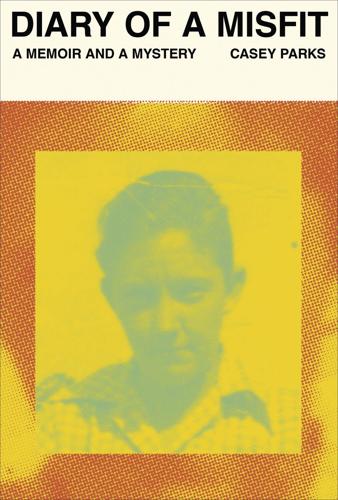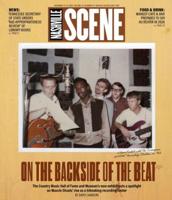Home from college on Easter Sunday 2002, journalist Casey Parks first found the courage to come out as gay to her rural Louisiana family, unleashing a torrent of panicked judgment from her mother. With one blast of tough-minded reason, her grandmother intervened. Later, she pulled Parks aside to share a childhood memory that had never left her: “I grew up across the street from a woman who lived as a man.”

This unexpected revelation would prove pivotal to Parks’ future, motivating a search that haunted her and helped to shape her for more than a decade. Parks chronicles these events in her compelling debut, Diary of a Misfit: A Memoir and a Mystery.
Describing Roy Hudgins as a kind, eccentric young man who wrote and played country songs for all the children of their poor neighborhood — a place known locally as Hell Street — Parks’ grandmother lamented losing track of Roy since those early times. “It’s eaten at me all these years,” she tells Parks. “Am I going to die without finding out?” Eventually, years later, she would echo her own words as she describes the powerful ways that learning of Roy’s story had influenced her granddaughter’s life: “It was like it burned a hole in you.”
As Parks searches for the truth behind this elusive figure from the past, she confronts myriad thorny questions that become inextricably linked with her own path through life. At every step, looking into Roy’s life exposes tangled threads of family memory, small-town mythos and daunting personal transformations.
Was there truth, for example, behind a claim that Roy’s mother had kidnapped him from abusive biological parents? Had he really sold some of his original country songs to famous Nashville musical acts? How did Roy feel about his own gender identity? His isolation within the community? Was it even fair to discuss his life in contemporary terms of transgender experience, or was doing so a result of Parks’ own projections? Was it ethical to read the pile of journals Roy had left behind?
All the challenging, potentially unanswerable questions about Roy’s story run parallel with Parks’ determination to become a good reporter. After leaving home for Portland, Ore., Parks begins her career as a bureau writer for The Oregonian. Parks writes candidly about her learning curve as a fledgling journalist, including her awkwardness and inexperience during numerous trips to Delhi, La., as she interviews people who knew Roy.
Those interviews yield poignant, heartrending details about Roy’s experiences in Delhi, including conflict with a church over his refusal to wear dresses or grow his crew cut long. For Parks, learning those details stirs up her own early memories of the Pentecostal church. With great sensitivity, Parks recounts the belonging she’d once found within her church community, a contrast to frequent chaos at home. But that belonging is shattered when her mother reveals to their pastor during service that Parks is gay. The pastor asks the church to pray that God will “save her and take her,” meaning that she should die immediately to be saved from sin. Her mother joins in with this prayer, worsening their fraught relationship.

Often, the other figures of Parks’ life recede from view, leaving Parks and her mother to battle out their complicated dynamic in an emotional foreground strewn with landmines. Even when the two women aren’t speaking, her mother’s legacy of trauma and her long-term struggle with pain pills complicate Parks’ ability to reconnect to her origins. For years, traveling home means confronting Roy’s painful history, rather than her own.
Diary of a Misfit provides an insightful entry in a tradition of memoirs by Southerners reckoning with a sense of dislocation. With each research trip home, Parks dives deeper into the conflict she’s felt between needing to leave home in order to survive and longing to return, though she may not be welcome. Parks argues that even a happy life lived within this conflict is “marked by the kind of yearning that can never be quelled as long as home is a place you’ve fled.”
Parks pours all her journalistic skill into Diary of a Misfit, shoring up legend with research and context while acknowledging the limited facts available after the passing of decades. But what makes Diary so moving is Parks’ artful handling of her own vulnerability within these events. The result is an absorbing, compassionately rendered page-turner that lingers in the mind.
To read an extended version of this review — and more local book coverage — please visit Chapter16.org, an online publication of Humanities Tennessee.
The ‘Celebration of the Written Word’ will take place Oct. 14 through 16 at War Memorial Plaza and the Nashville Public Library







